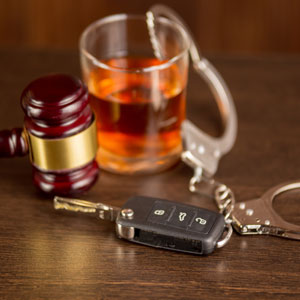Navigating DUI And DWI Laws In New Jersey
 In this article, you can discover:
In this article, you can discover:
- The broad definition of DUI and DWI in New Jersey beyond BAC levels.
- The legal obligation to provide breath samples and the consequences of refusal.
- The severe penalties associated with DWI convictions and the importance of legal representation.
Have you ever wondered what constitutes a DUI or DWI in New Jersey? It’s more than just exceeding the 0.08% blood alcohol content (BAC) limit. In fact, you can be charged with DUI even if your BAC is below this threshold. If your driving is impaired due to alcohol or drugs, you’re at risk of being found guilty.
It’s a common misconception that you must be over the limit to face charges. Surprisingly, even a BAC of 0.05% with signs of impairment can lead to a conviction. Understanding this distinction is crucial for anyone navigating New Jersey’s roads.
Do I Have To Give A Breath Or Blood Sample During The DWI Arrest In New Jersey?
When you’re pulled over for a suspected DWI in New Jersey, you might wonder about your obligations regarding breath, blood, and urine tests. Here’s what you need to know:
As a New Jersey driver’s license holder, you’ve agreed to submit to a breath test if an officer has reasonable grounds to request one. If you refuse, you’ll face a separate charge known based on your refusal to give a breath sample. This charge carries penalties that are similar, if not identical, to those for a DWI conviction. So, refusing the breath test doesn’t offer any advantage – it can actually complicate your situation further.
It’s important to understand that this isn’t the time to debate the officer’s probable cause. You’re required to provide the breath sample without the opportunity to consult an attorney, family, or friends beforehand. However, the situation is different for blood and urine tests.
You’re not obligated to consent to blood and urine tests as part of your driver’s license agreement. So, before agreeing to blood or urine testing, think carefully.. Often, individuals may feel pressured to consent due to the intimidating nature of the situation, but it’s crucial to remember that you have the right to refuse.
By understanding your rights and obligations during a DWI arrest, you can navigate the process more confidently and make informed decisions.
What Are The Penalties For A DWI In New Jersey, And What Happens To My Driver’s License?
If you’re facing a DWI charge in New Jersey, the stakes are high, especially when it comes to your driving privileges. Here’s what you can expect:
- First Offense: Your driver’s license could be suspended for six months to one year. If drugs are involved, the suspension period ranges from seven months to one year.
- Second Offense: The consequences escalate with a potential two-year suspension of your driver’s license.
- Third Offense: While the suspension period has recently been reduced from ten to eight years, the penalties remain severe, including a mandatory 180 days in county jail. Unlike previous offenses, this jail time is non-negotiable, with no options for house arrest or work release.
Though the consequences are severe, there’s a glimmer of hope for third-time offenders. Ninety days of the mandatory six-month jail term can be served in an inpatient drug and alcohol rehabilitation facility, offering a chance for recovery and rehabilitation.
The impact of a DWI conviction extends beyond just legal penalties; it can disrupt your life and livelihood. Understanding these consequences is the first step in navigating the challenges ahead and protecting your future.
If I Plan On Just Pleading Guilty To A DWI Charge In New Jersey, Do I Really Need To Hire An Attorney?
Contemplating a guilty plea for a DWI charge in New Jersey? Think again. An attorney can be your lifeline, uncovering defenses you might not have considered. They can navigate the complexities of DUI law, potentially saving you from harsh penalties like license suspension or jail time.
Remember, even if you believe your case is clear-cut, there are nuances and legal strategies that could work in your favor. In fact, most judges won’t let you plead guilty without legal representation due to the significant consequences, so having an attorney is not just advisable; it’s often necessary.
For more information on DUI/DWI Law In New Jersey, an initial consultation is your next best step. Get the information and legal answers you are seeking by calling (856) 499-8066 today.

Call Now For A Personalized Case Evaluation!
(856) 499-8066
